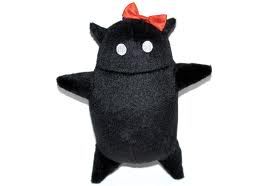Revolutionaryloser said:
I think you'll find before it was a trope, it was coined by a film scholar who wrote a small essay on why Kirsten Dunst's character in Elizabethtown was kind of a sexist portrayal of women that is actually really pervasive in our media. It was always meant to be a pejorative term. Of course, MPDG have superficial traits like eccentric fashion sensibilities and unpredictable behaviour, but the original MPDG is this chick:
Of course the meaning is warped and obscured over time because people make presumptions and don't understand the original definition, and I understand if you decide to side with those people, but I think it's important to adhere to the preestablished semantics of the terms used in a discussion, especially when the discussion pertains to something as polemic and delicate as sexism.
We were specifically talking about the TVTropes page, with the MPDG
trope description on it, and whether or not Haruhi fits it. That before it was a trope it was also an insult, has nothing to do with it.
A few decades ago, "Space Opera" meant trashy, shallow sci-fi, and it was used in pair with "horse opera", meaning trashy, shallow western. But as it turns out, if you use the term objectiely, and not as an insult at sci-fi shows that you don't like, it turns out that it's stereotypes (unscientific, fantasy-like setting) still describe something, a genre, that can be done well.
It's the same case with most tropes, genres, and similar categories. They can all be used as insults with the implication that it was done badly, but they eventually either lose all meaning, like Mary Sue, that is nowadays applied to every competent or likeable character, as fans try to insult each other's favorite characters, or end up dropping the insult part and become tropes that can be at least semi-objectively categorized, like Space Opera.

